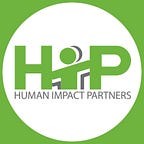Tax Day: What’s Health Equity Got to Do With It?
By Sari Bilick and Amber Akemi Piatt
While the federal tax deadline has been moved to May 17th this year, we still feel called to mark April 15th with reflections on how critical our tax structure is to building a healthy society. As we continue to protect each other through the COVID-19 pandemic and get to know the new federal administration, we have the opportunity to make long-overdue structural changes to improve community health, address historical and ongoing oppression, and promote equitable COVID-19 recovery.
Our taxes can be an important component in that effort: by pooling our resources together for collective good, we can invest in health-promoting policies, and shift our resources away from systems that perpetuate harm and deepen inequities.
In Biden’s first 100 days in office, we have seen some meaningful shifts — but we know this is just a start. It’s more important than ever that we keep organizing and advocating for the large scale change our communities deserve. That means reimagining and transforming all of our systems — including our tax systems — to build toward a vision of collective care and community power, and redistribute wealth in our communities.
In February, we released a cross-sector federal policy platform with demands gathered from grassroots groups, social justice movements, community organizers, and public health organizations across the country to advance racial justice and health equity. These demands call on the Biden-Harris Administration to enact bold, immediate, and transformative policies that address the long-standing health crises impacting our communities, including severe economic inequality, housing insecurity, systems of state violence, and the gutting of public health infrastructure.
The harsh reality is that not all communities experience these issues equally. Structural and systemic racism guarantees that people of color — especially Black, Latinx, and Indigenous people — are most harmed by these overlapping crises. It is an unfair burden to bear, yet we remain deeply inspired and guided by the leadership of those who know these injustices most directly and intimately. Leaders like Reverend Dr. William J. Barber II with the Poor People’s Campaign continue to give voice to the deliberate choices our government officials make that promote, or diminish, community health. He, like so many others, reminds us that we have abundant resources and could redesign our social, political, and economic relationships and systems to foster health.
At its best, budget and policy change is accessible to everyday people looking to improve conditions where they live, work, and play.
That’s why we were so excited when many of our partners launched defundpolice.org, “a one-stop-shop information source for campaigns to defund police” this year. Though invest/divest campaigns are not new or even unique to policing, the widespread calls to defund the police have cracked open new appetites for information and opportunities for material gains. Essentially, an invest/divest campaign seeks to shift resources from one agency, program, or system to another. One of the trickier parts of this type of approach is estimating actual costs and savings, which is why the People’s Budget Calculator caught our attention. It puts the user in the driver’s seat of designing a budget proposal rooted in real data, and opens up new possibilities for advocates across the country.
How would you reallocate funding in your jurisdiction to promote health equity?
Simply put, taxes are a way to do together what we cannot do alone. Taxes enable us to build public transportation infrastructure. To prevent and fight wildfires. To educate our kids and keep libraries open. We can imagine and build towards a society where our taxes also assure living wages for all, guarantee a roof over our families’ heads, and bolster community-led, non-punitive emergency response systems. As we pay our taxes this year, let’s commit ourselves to the work needed to co-create the healthy, equitable future our loved ones deserve.
Resources and actions to shift the narrative on taxes and health
- View our Federal Policy Platform for Health Equity Now in support of policy demands collected from communities, social justice movements, organizers, and public health organizations across the country that advance health justice
- Take action during Biden’s first 100 days in office to demand bold, immediate, and systems-focused action to advance collective health using our regularly updated crowdsourced action database.
- Take action using the #TaxesForHealth Action Toolkit to post on social media on April 15th (and until federal taxes are due on May 17th) and write a letter to the editor on how we can use our taxes to invest in health.
- Use this transformative tax narrative, created by Public Health Awakened members in 2018, to talk about taxes and health in your own work.
- Engage in local budget advocacy to invest in health using Public Health Awakened’s Budget Advocacy Toolkit.
- Join Public Health Awakened, our national network of public health workers organizing for health, equity, and justice.
Sari Bilick leads the organizing and advocacy work at HIP and coordinates Public Health Awakened, a network of public health professionals organizing to support social justice movements and resist attacks on our communities. She is passionate about mobilizing people around the issues most important to them and bringing a social justice and equity lens into all spaces.
Amber Akemi Piatt leads HIP’s Health Instead of Punishment Program. Originally trained in clinical psychology, violence prevention, and public health, she now works with grassroots groups and coalitions on successful campaigns to curb United States militarism, incarceration, and police violence. Her commitment to taking action in solidarity with those who have been most harmed by carceral systems guides her work.
📌 Did you know? Human Impact Partners provides health equity capacity building to public health organizations. Contact us to learn more about our offerings at info[at]humanimpact.org.
